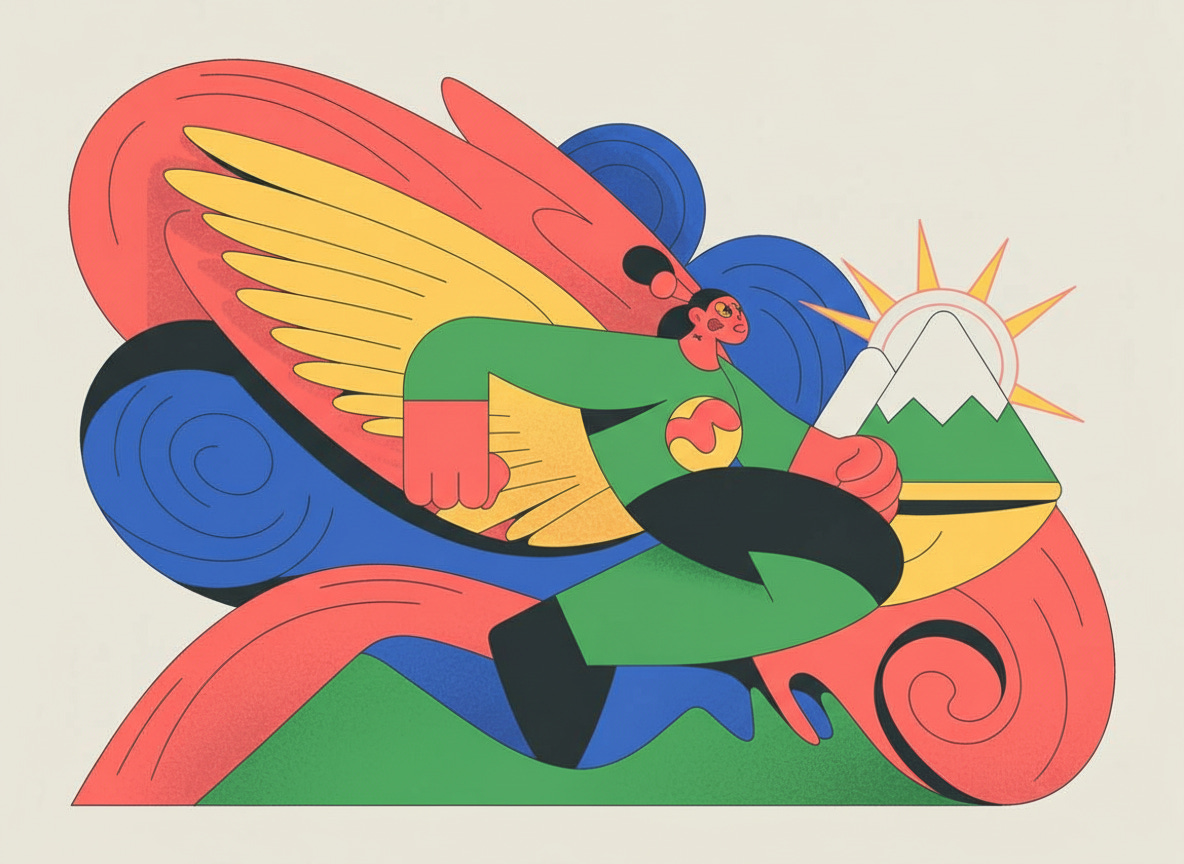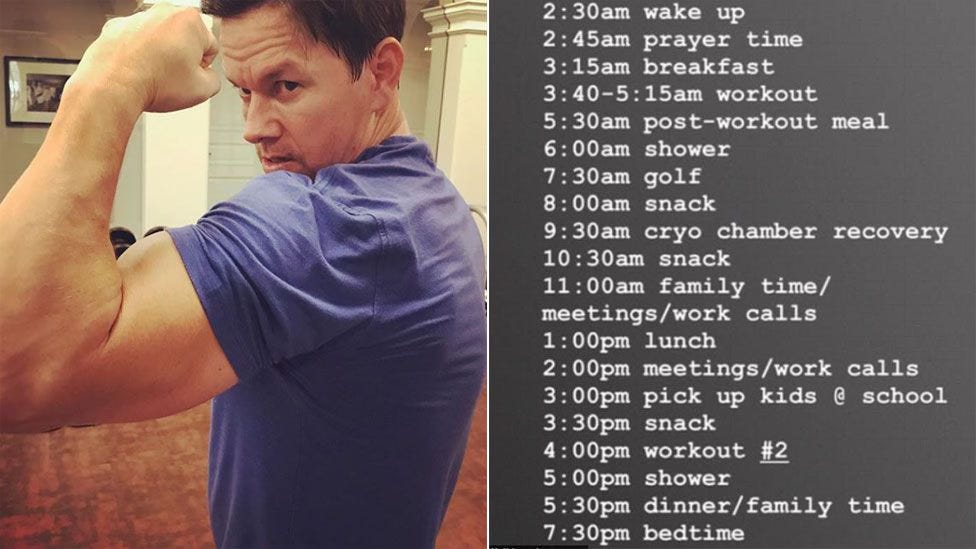From Setbacks to Superpowers
And the Art of Auditing Your Advantages.
Life can be unpredictable. We all know that.
But in the face of a crisis, the real question is how you respond to it and what resources you can call upon to help you.
Not so long ago, I was staring down the barrel of my fifth redundancy in a decade: two charities, one business pivot, one acquisition, and one pandemic. As you might expect, my initial response was a frenzy of job applications, recruiter calls, and trawling online job boards.
The job market is a total firestorm.
Some of you might be familiar with the current job market. In my experience, I often found myself competing with over 400 candidates. Surprisingly, I received lots of feedback, but it usually went something like this: "We loved your application, but there are 20 other candidates who are coming from big agencies, so we're going to speak to them first."
So I decided to search for a new plan by diving into the archives. Stashed away in over 15 years' worth of notes I found half-written articles, business ideas, personal development mantras, workshop plans, and endless project deliverables. I realised that I had worked with every level of leadership, helped launch five start-ups, and created purpose-driven values on a global level. I had created a library of content for every social platform, launched websites, and unlocked creative breakthroughs for 27 global brands in the last few years alone.
Turns out that I had everything I needed to start my own business, and since then I’ve managed to replace my income from a standing start! But that's not what this article is about, it's about how your perspective shifts when you audit your advantages.
Audit your advantages and take control of your story.
YouTube recently served me a really interesting video on this subject. In it, Ali Abdaal unpacks some of the key messages from Ash Ali and Hasan Kubba's book, The Unfair Advantage.
He outlines that success is a combination of fair play and unfair advantages. Fair play refers to things we can all replicate, while unfair advantages are unique to each individual.
Consider Mark Wahlberg (yep, I didn’t expect that either).
In 2018, he shared his much-talked-about daily routine on social media, and it’s a good example of fair play and unfair advantages. It included things like prayer time, workout, family time, and waking up at 2.30am. Regardless of its sanity, these are all examples of things we could classify as fair play. They are actions most of us could take if we wanted to.
However, it also includes things like 'cryo chamber recovery', which is something that most of us don’t have access to. It’s an unfair advantage. Side note: in 2022, Wahlberg updated his schedule, revealing he’d developed a lazy streak — he now gets up at 3.30am (and the cryo chamber is out)!
Taking a wider view, we can consider a range of successful start-up founders. Sure, there are rags-to-riches stories, but most of them are packaged with some sort of unfair advantage, such as family wealth, an Ivy League or Oxbridge education, or access to the right network, nepotism, etc. In fact, event the rags-to-riches crowd were propelled by the right people at the right time (community is the great leveller, but let’s cover that advantage, that we can all leverage, another time).
The reality is that we’re not playing on a level playing field.
But a really interesting thing that Abdaal highlights in an interview segment with one of The Unfair Advantages authors, Hasan Kubba, is that we’re not offering a level playing field to others either — we have our own unfair advantages.
Take my background, for example. When I traced my employment history, I discovered that I have worked 23 jobs in 29 years, ranging from cleaner to Strategy Director. What my employment history has denied me in terms of a career path, has given me unprecedented breadth instead.
Reframe your disadvantages as superpowers.
At first glance, what naturally reads as a disadvantage is without question an unfair advantage. My unparalleled experience means I can command any room, lead any team, and manage negotiations of all kinds. It has become a superpower.
Here’s another example from the celebrity world. Today, Oprah Winfrey is worth $2.8 billion, but she was born into poverty and survived a traumatic childhood. She is known for her empathy and as a gifted communicator. Why? Because she understands adversity. She has turned her deeply rooted connection with crisis into a remarkable advantage, not to mention the commercial drive that can be born from the experience of having very little.
"It doesn't matter who you are, where you come from. The ability to triumph begins with you. Always." - Oprah Winfrey
What are your unfair advantages?
In 2016, after my first two redundancies, I found myself working with collaboration specialist, Richard Watkins. He was an important mentor to me at that time and helped me take a significant step up in my career. He introduced me to the concept of career threads and helped me to understand that the lack of a traditional career path I’d experienced would become my strength, in time.
He was right, but it has taken years, five more jobs, and another three redundancies for me to truly understand it at a practical level. My chequered career is my unfair advantage, and all those micro-learnings and experiences are fuel, not failure.
To help you audit your advantages, I've included a couple of useful links below. But let’s start with something practical. I suggest you create a quick timeline of your life, plotting important moments, relationships, jobs, career highlights, and anything else that stands out as the process unfolds.
Are there any threads that connect those moments together?
Are there distinctive things that are unique to your story?
Are there places where the playing field is levelled in your favour?
Answering some of these questions will begin to reveal your unfair advantages and perhaps unlock a new and exciting direction for you.
And if there's one thought I want you to hold onto, it's this: if when looking ahead you feel unremarkable or your path forward feels unclear, look back, I promise there is gold hidden in the earlier chapters of your story.
Expand your horizons? Here’s some good stuff to take you forward.
What Makes People Successful? - Ali Abdaal
Want to audit their advantages? 19 famous figures who went from rags to riches - Business Insider
Understanding The M.I.L.E.S. Framework (from the book The Unfair Advantage) - Ash Ali





